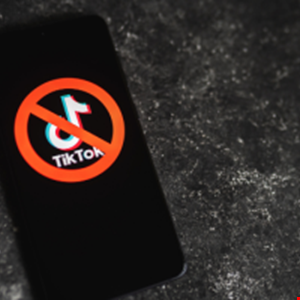- I found a Bluetooth tracker for Android users that works better than AirTags (and is cheaper)
- Learn with Cisco at Cisco Live 2025 in San Diego
- This Eufy robot vacuum has a built-in handheld vac - and just hit its lowest price
- I highly recommend this Lenovo laptop, and it's nearly 50% off
- Disney+ and Hulu now offer prizes, freebies, and other perks to keep you subscribed
Montana Becomes First US State to Pass TikTok Ban

The state of Montana in the US has become the first to pass legislation banning TikTok on personal devices.
The bill, SB 419, passed by a vote of 54 to 43, mentions several concerns about TikTok, such as alleged surveillance from the Chinese government as well as the encouragement of “dangerous activities” among youth using the app.
Interestingly, the proposed legislation makes it illegal for app stores to offer TikTok but allows individuals who already have TikTok installed to keep using it.
Still, violations for trespassing companies (not individuals) could carry a penalty of up to $10,000 (roughly £8000) to be enforced by Montana’s Department of Justice.
Scheduled to come into effect in January 2024, the ban needs to be signed into law by Governor Greg Gianforte, a Republican who previously contributed to the TikTok ban on government devices.
Read more on the ban here: Senate Approves Bill Banning TikTok From US Government Devices
According to TikTok’s spokesperson, “the bill’s champions have admitted that they have no feasible plan for operationalizing this attempt to censor American voices and that the bill’s constitutionality will be decided by the courts.”
The company also said it will continue to “fight for TikTok users and creators in Montana whose livelihoods and First Amendment rights are threatened by this egregious government overreach.”
Krishna Vishnubhotla, vice president of product strategy at Zimperium, also believes the ban will face difficulties.
“Although app stores may find a way to limit availability by state, it is only possible to enforce this by knowing the exact location of the user, which violates their privacy as well,” the executive said. “Users can easily bypass location-based restrictions with VPNs and other tools. Enforcing a ban of this sort is a real issue.”
More generally, Craig Lurey, Keeper Security CTO, believes users should no longer trust that an app or website will keep their data safe.
“It’s imperative that everyone take proactive measures to protect themselves online through strong cyber hygiene,” Lurey warned. “That means users should take extreme caution when downloading any app onto their devices.”
The SB 419 bill comes weeks after Erich Andersen, general counsel for TikTok, claimed the company will “continue to safeguard US user data from China.”

